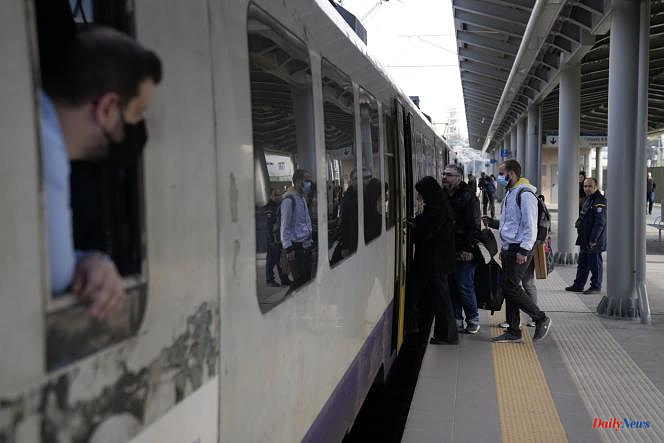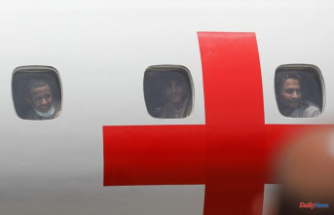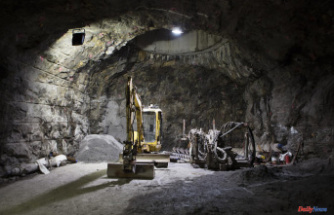Three weeks after the cessation of train traffic following the train disaster in Greece, traffic partially resumed on Wednesday March 22.
Only certain intercity lines around Athens are again assured for passenger traffic, according to data from the railway company Hellenic Train, in particular that linking Piraeus, a major port near Athens, to the international airport Elefthérios Venizélos , 40 kilometers from the capital. Early Wednesday afternoon, a dozen passengers were waiting on the platform for the train to the airport, which is very popular with both tourists and residents of the Attica region around the Greek capital.
The line where the deadly head-on collision between a passenger train and a freight convoy took place on February 28 in Tempé will not be put back into service until April 1, according to the new Minister of Transport, George Gerapetritis. It is the country's main line, 600 kilometers long and connecting Athens to Thessaloniki, Greece's second city, in the north.
Freight train traffic that provides commercial transit between Greece and central Europe will not resume until the end of March, according to the authorities. The restoration of all regular routes must take place within five weeks, assured the minister last week.
Security Questions
On board trains on Wednesday, questions about the reliability of the service remained numerous, while the Tempé disaster, which killed 57 people, revealed malfunctions in the dilapidated safety systems of the railways. "We are called to move on to the day after the tragic event that has shaken us all," said Panayiotis Terezakis, the new director general of the State Railways Organization (OSE) who replaced his predecessor who was sacked a few days after the tragedy. He assured that he would do "everything humanly possible to regain the confidence of passengers" and "to bring the country's trains back into service".
George Gerapetritis promised additional security measures last week, including two conductors on intercity trains and "three assistants instead of two so far on Intercity passenger trains between Athens and Thessaloniki".
Attributed mainly to an error by the station master on duty that evening, this accident, the worst that Greece has known, also revealed certain negligence by the State in the modernization of train safety systems. Rail transport in Greece is relatively undeveloped, comprising only around 2,100 kilometers of track. A dense network of coaches serves the main towns and villages of the country.
The day after the accident, the then transport minister, Kostas Karamanlis, resigned. Large, often violent, angry protests have rocked Athens and other cities since the disaster, pointing the finger at successive Greek governments for neglecting train safety. Under pressure, the Prime Minister, Kyriakos Mitsotakis, announced Tuesday evening that the general elections would be held in May without however specifying the exact date.












